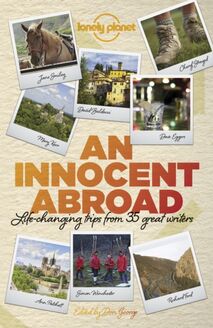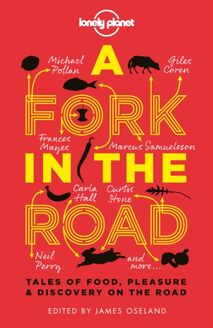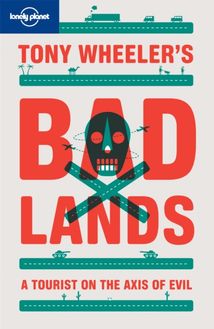-
 Univers
Univers
-
 Ebooks
Ebooks
-
 Livres audio
Livres audio
-
 Presse
Presse
-
 Podcasts
Podcasts
-
 BD
BD
-
 Documents
Documents
-
- Cours
- Révisions
- Ressources pédagogiques
- Sciences de l’éducation
- Manuels scolaires
- Langues
- Travaux de classe
- Annales de BEP
- Etudes supérieures
- Maternelle et primaire
- Fiches de lecture
- Orientation scolaire
- Méthodologie
- Corrigés de devoir
- Annales d’examens et concours
- Annales du bac
- Annales du brevet
- Rapports de stage
La lecture à portée de main
Vous pourrez modifier la taille du texte de cet ouvrage
Découvre YouScribe en t'inscrivant gratuitement
Je m'inscrisDécouvre YouScribe en t'inscrivant gratuitement
Je m'inscrisEn savoir plus
Vous pourrez modifier la taille du texte de cet ouvrage
En savoir plus

Description
Sujets
Informations
| Publié par | Lonely Planet |
| Date de parution | 01 avril 2011 |
| Nombre de lectures | 0 |
| EAN13 | 9781742204765 |
| Langue | English |
| Poids de l'ouvrage | 1 Mo |
Informations légales : prix de location à la page 0,0400€. Cette information est donnée uniquement à titre indicatif conformément à la législation en vigueur.
Extrait
Tony Wheeler was born in England, but grew up in Pakistan, the West Indies and the USA and has kept on travelling ever since. A trek along Asia’s ‘hippy trail’ led him to write the very first Lonely Planet guidebook in 1973 and over the following years Tony has written or contributed substantially to more than 30 Lonely Planet titles. The New York Daily News has described Lonely Planet as ‘the specialists in guiding weird folks to weird places’ and Tony’s continued enthusiasm for the world’s weirder corners took him to the nine countries that feature in this book.
Return to beginning of chapter
Tony Wheeler’s Bad Lands
Published by Lonely Planet Publications Pty Ltd
90 Maribyrnong Street, Footscray, Vic 3011, Australia 150 Linden Street, Oakland CA 94607, USA 2nd Floor, 186 City Road, London, EC1V 2NT, UK
Published April 2007, reprinted 2010, ebook 2010
Edited by Nigel Chin, Alan Hurndall, Katie O’Connell, Erin Richards, Angela Tinson Internal design by Mark Adams Cover design by Christopher Brand Thanks to Jane Atkin and Brendan Dempsey
eISBN 9781742204765 © Lonely Planet 2010
LONELY PLANET and the Lonely Planet logo are trademarks of Lonely Planet Publications Pty Ltd.
All rights reserved.
Return to beginning of chapter
CONTENTS
Introduction
Afghanistan
Albania
Burma (Myanmar)
Cuba
Iran
Iraq
Libya
North Korea
Saudi Arabia
The Evil Meter™
Other Bad Lands
Return to beginning of chapter
INTRODUCTION
WHAT MAKES A LAND BAD?
It’s got nothing to do with geography or topography. Rivers don’t invade, deserts don’t become corrupt and, while terrorists may hide out in a country’s mountains and valleys, the land itself will have had nothing to do with why a Bad Land turned to the dark side. My travels through the Bad Lands took me through staggeringly impressive country – from endless desert dunes to snow-capped mountain peaks, from winding rivers to tropical beaches – but always in the background was the nagging realisation that these were countries that had gone wrong and that people, not nature, had made the wrong turns.
So while my travels do include a varied assortment of geographic and cultural marvels, it’s delving into history and politics, much of it very recent, that illuminates how each country achieved Bad Land status. I could not have asked for a better cast of characters – medal-dripping dictator despots, fatally flawed national heroes, heroically doomed reformers, religious fanatics and Nobel Prize winners all played their part in the Bad Land stories. Genghis Khan, Mother Teresa, Osama bin Laden, Lawrence of Arabia and, of course, George W Bush all make appearances. The obsessive pursuit of power can also lead to some decidedly eccentric behaviour; for some Bad Land rulers, dressing up ranks second only to erecting statues and portraits in their personality-cult enthusiasms.
Of course, it’s not just the locals. One country’s terrorists are another country’s freedom fighters, and ill-thought-out measures to discourage terrorists can actually encourage them. We don’t even have to fund them directly – although some very respectable countries have done exactly that. For some countries, turning bad may be all their own work, but equally often outside influences from colonial meddling to big power-proxy struggles have played a disproportionate part in a Bad Land’s sorry situation.
I’ve been travelling for a long time. Although I was born in England, I lived in Pakistan until the age of five and did almost all my high-school years in the USA. I’ve kept on travelling ever since, co-founding Lonely Planet Publications in the early 1970s, writing dozens of travel-related books and maintaining a keen interest in the world’s weirder places. ‘Where’s your favourite place?’ I’m often asked, and my honest answer is, ‘The departure lounge.’
On the ground, walking the streets, you quickly pick up whether a place is safe or dangerous, and often have a far better idea of how well the average person is doing than expert economists can glean from any number of GNP and GDP statistics, or international journalists from meeting with government officials and spokespeople after parachuting into a five-star hotel.
I’m not the only person to feel that way. In an article in the Columbia Journalism Review in 2006, American writer Robert Kaplan commented that ‘In the 1990s, when it was particularly hard to get visas to Iran – and much of the information about that country emerged out of seminars in Washington – the best thing to read on the subject was Iran: A Travel Survival Kit, by David St Vincent, published in the Lonely Planet series.’
How did I choose my Bad Lands?
A country doesn’t even need to be a fully fledged Bad Land to have some bad marks on its scorecard. Even nice little Switzerland has its bad side; if an evil dictator from a real Bad Land wants a place to stash his ill-gotten gains, the Swiss are only too happy to provide a secure, anonymous, no-questions-asked bank vault.
The selection criteria were simple enough: how does a country treat its own citizens? Is it involved in terrorism? Is it a threat to other countries? The Axis of Evil was an obvious starting point. Iran, Iraq and North Korea went straight on to my list. Then I added Burma (Myanmar) because it’s regularly cited as exhibiting appalling examples of human-rights abuses and its military government has kept a Nobel Prize winner locked up because she had the temerity to win an election. Cuba because the USA has been shouting for regime change there for over 50 years with a conspicuous lack of success. Libya because it’s done absolutely everything wrong – oppressed its own citizens, funded and actually organised terrorism, worked on Weapons of Mass Destruction and even invaded a neighbouring state. And got away with it.
Afghanistan joins the list for harbouring the terrorist who can claim to be the biggest single factor in creating the War on Terrorism with which we’re all caught up, whether we want to be or not. Saudi Arabia went in as the place that bred lots of terrorists – and, what’s worse, rich terrorists – by mismanaging things at home. Finally I threw in Albania, not because it’s a Bad Land at all anymore, but simply because it’s a fascinating example of a tiny, peculiar little dictatorship that cut itself off from the outside world at considerable cost to its own people.
So what’s changed in the three years since this book was first published? Remarkably little. Afghanistan still teeters between relative calm in the west and the north, the odd suicide bombing and Taliban attack in Kabul, and a war zone in the south. The Karzai government continues to be less than convincing, but a trickle of tourists still arrives, and these days they even travel all the way across central Afghanistan.
In Burma the military generals make occasional encouraging noises, and then balance sense with nonsense by building a despised new capital city at Nay Pyi Taw in the centre of the country. Meanwhile Aung San Suu Kyi continues to languish under house arrest, another uprising was quashed with ferocity in 2007, and the disastrous Cyclone Nargis in 2008 gave the government the opportunity to prove, yet again, that they can score 10 out of 10 for oppression and economic incompetence, but zero when it comes to providing useful assistance to their people.
In Cuba, Fidel continues to pull the strings from his (long-running) death bed, while Obama promises to change the US’ attitude towards the Caribbean nation, but doesn’t actually do very much. Yet, at least. In Iran, the general population proves, once again, that they want democratic change, and Iranian families head towards a fertility rate comparable to the most advanced Western nations while the Ayatollah continues to believe the calendar is stuck in the medieval era.
In neighbouring Iraq, the British have withdrawn completely and the American troop numbers head in the same direction, while the Iraqi government takes increasing control of its own destiny. Intrepid tourists continue to visit the northern Kurdistan region, but also start to head south to Baghdad and some of the other main attractions of the country. Nevertheless, nobody would claim that Iraq is a safe place to visit; random acts of extreme violence continue to erupt and the jury will be out for a long time yet on whether the 2003 invasion was a good idea. Whether the end result is a step forward or a step back is also yet to be decided.
Libya? Gaddafi continues to prove on a regular basis that he’s as nutty as a fruitcake; in 2010 his latest exploit was to declare a jihad on Switzerland. They weren’t very polite to his equally nutty fifth son Hannibal, were they? Meanwhile in North Korea, Kim Jong-il underlines that there’s more than one crazy out there, alternating between threatening rants and holding out his begging bowl to the same people he’s been menacing. On the other hand there have been some faint signs of the North Korean population realising that their loving father figure isn’t quite as astoundingly competent as he claims – a disastrous demonetisation scheme in 2009 prompted public outrage.
In Saudi Arabia women still can’t get behind the steering wheel, but there have been some minor improvements in general human rights, and the much-hated religious police, the mutawwa, seem to have been reined in just a little. Pushing schoolgirls back into a burning building because they weren’t properly attired to appear on the streets proved to be a little too much for even staunch Islamists to stomach.
So the overall report is minor improvements in some places, a step forward then a step back in others, but no new chapters in the history books. The generals still rule, the dictators still dictate, the crazies are still at the controls; peace has not broken out.
Having completed my Bad Lands travels I ran my Evil Meter™ across the countries. How bad is really bad? The Evil Meter™ decides.
Bad Land
-
 Univers
Univers
-
 Ebooks
Ebooks
-
 Livres audio
Livres audio
-
 Presse
Presse
-
 Podcasts
Podcasts
-
 BD
BD
-
 Documents
Documents
-
Jeunesse
-
Littérature
-
Ressources professionnelles
-
Santé et bien-être
-
Savoirs
-
Education
-
Loisirs et hobbies
-
Art, musique et cinéma
-
Actualité et débat de société
-
Jeunesse
-
Littérature
-
Ressources professionnelles
-
Santé et bien-être
-
Savoirs
-
Education
-
Loisirs et hobbies
-
Art, musique et cinéma
-
Actualité et débat de société
-
Actualités
-
Lifestyle
-
Presse jeunesse
-
Presse professionnelle
-
Pratique
-
Presse sportive
-
Presse internationale
-
Culture & Médias
-
Action et Aventures
-
Science-fiction et Fantasy
-
Société
-
Jeunesse
-
Littérature
-
Ressources professionnelles
-
Santé et bien-être
-
Savoirs
-
Education
-
Loisirs et hobbies
-
Art, musique et cinéma
-
Actualité et débat de société
- Cours
- Révisions
- Ressources pédagogiques
- Sciences de l’éducation
- Manuels scolaires
- Langues
- Travaux de classe
- Annales de BEP
- Etudes supérieures
- Maternelle et primaire
- Fiches de lecture
- Orientation scolaire
- Méthodologie
- Corrigés de devoir
- Annales d’examens et concours
- Annales du bac
- Annales du brevet
- Rapports de stage


















